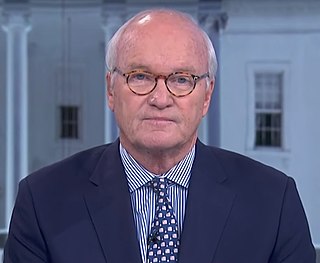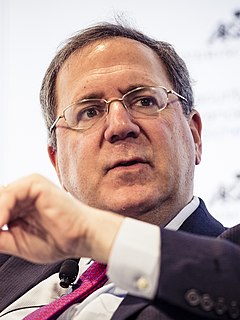A Quote by Jamal Khashoggi
In the event of war, probably Saudi Arabia will facilitate some certain logistics to make the operation easier for the United States, but actually, the United States does not need Saudi territories to launch a war against Iraq.
Related Quotes
Allowing an independent and sovereign Iraq could be a nightmare for the United States. It would mean that it would be Shi'ite-dominated, at least if it's minimally democratic. It would continue to improve relations with Iran, just what the United States doesn't want to see. And beyond that, right across the border in Saudi Arabia where most of Saudi oil is, there happens to be a large Shi'ite population, probably a majority.
It was not the United States who invaded Kuwait; it was Iraq. It was not the United States that went to war with Iran; it was Iraq. It was not the United States that fired chemical weapons at Iran; it was Iraq. And it was not the United States that murdered innocent Iraqi citizens with chemical weapons; it was Iraq.
I was the first senior American official to meet with Riyadh's dynamic Deputy Crown Prince Mohammed bin Salman after the Saudi intervention in Yemen in 2015. I reiterated the United States' commitment to defend Saudi Arabia against Houthi aggression and to help press the Houthis back to the bargaining table.
In the Islamic world, the U.S. is seen in two quite different ways. One view recognizes what an extraordinary country the U.S. is.The other view is of the official United States, the United States of armies and interventions. The United States that in 1953 overthrew the nationalist government of Mossadegh in Iran and brought back the shah. The United States that has been involved first in the Gulf War and then in the tremendously damaging sanctions against Iraqi civilians. The United States that is the supporter of Israel against the Palestinians.
Moves toward sovereignty in Iraq stimulate pressures first for human rights among the bitterly repressed Shi'ite population but also toward some degree of autonomy. You can imagine a kind of a loose Shi'ite alliance in Iraq, Saudi Arabia, and Iran, controlling most of the world's oil and independent of the United States. And much worse, although Europe can be intimidated by the United States, China can't. It's one of the reasons, the main reasons, why China is considered a threat. We're back to the Mafia principle.

































